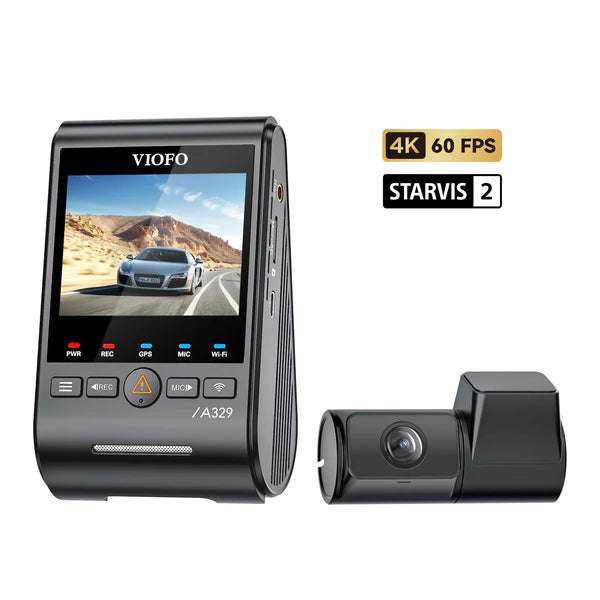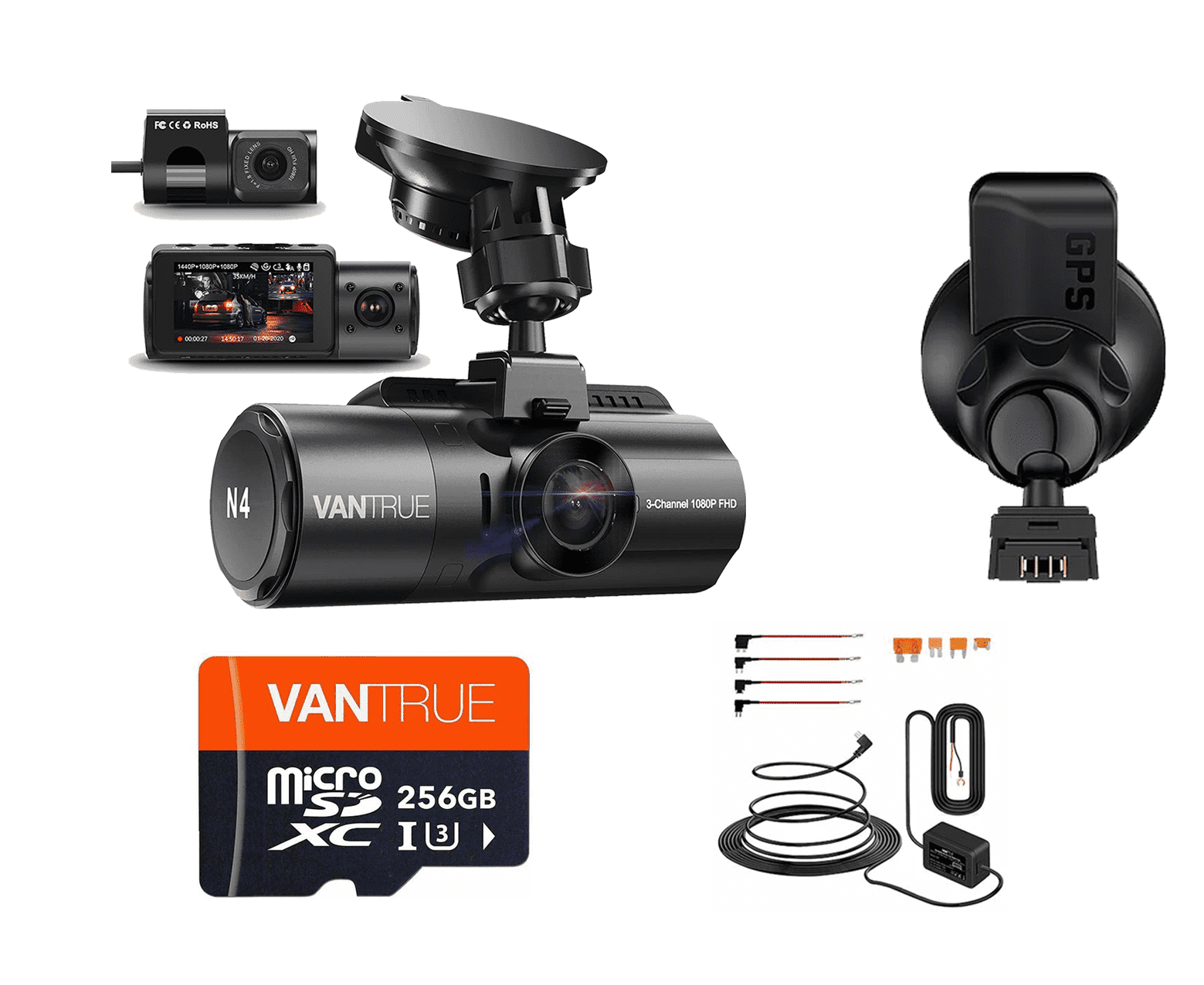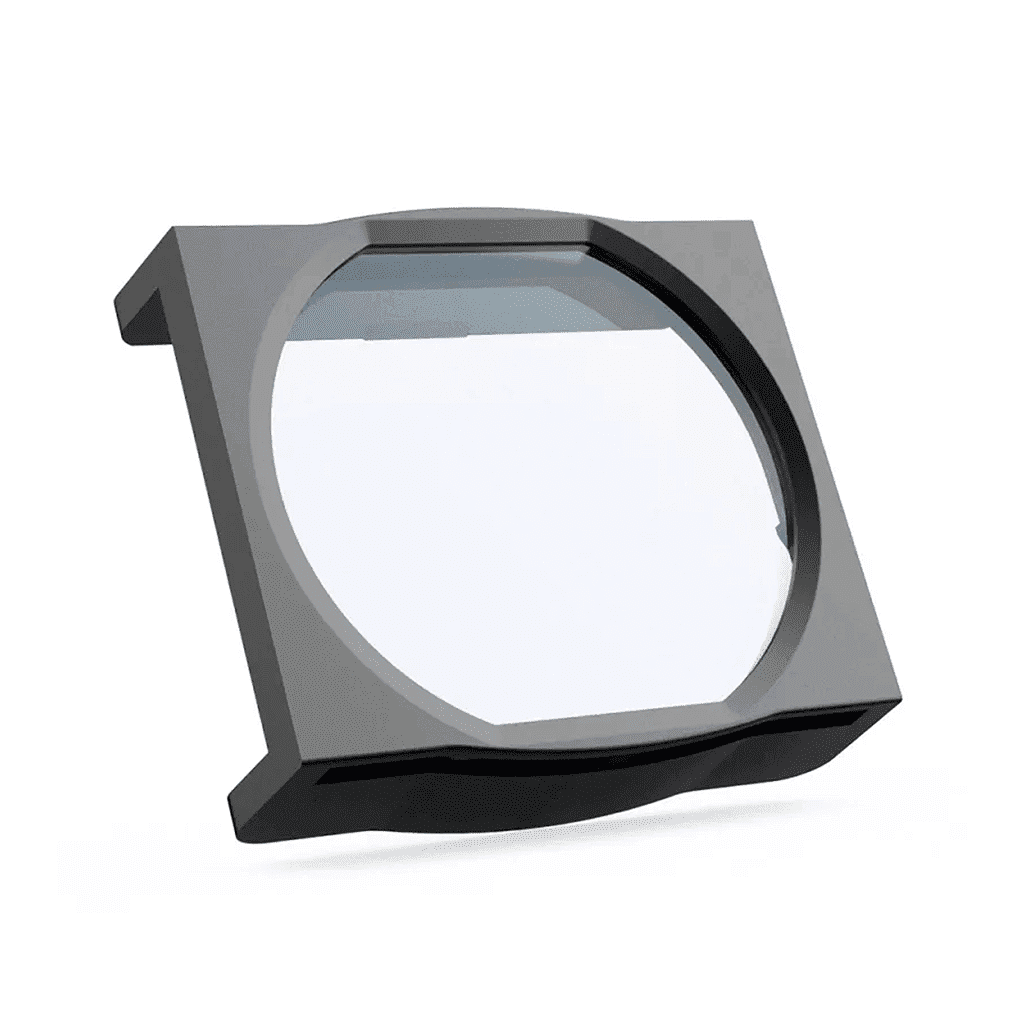Are dashcams even allowed to be used in Germany? This is a question that many drivers ask themselves. The answer is not that simple, as the legal situation is complex and has been shaped by various court rulings in recent years. This article summarizes the most important points and explains what is and is not allowed when using a dashcam.
What is a dashcam?
A dashcam, also known as a car camera, is a small camera that is attached to the interior of a vehicle, usually on the dashboard or windshield - similar to a navigation device. It is used to record traffic events while driving. Recording usually starts and stops automatically when the vehicle is ignited. Most models have a battery that allows an operating time of up to one hour. If necessary, the battery can be recharged via the car's cigarette lighter. The dashcam continuously records videos and saves them on an internal memory card. To ensure continuous recording, older recordings are automatically overwritten as soon as the memory card is full. However, modern dashcams have a G-sensor (acceleration sensor), which saves the recordings in the event of an impact or heavy braking and protects them from being overwritten.
What advantages do the mini cameras offer in road traffic?
Dashcams record the traffic in front of the vehicle. Some models also record the interior or the rear area. The main reason for using a dashcam is to secure evidence in the event of a traffic accident. The recordings help to understand exactly how the accident happened and who is to blame. This can be particularly helpful when you are in court or speaking to the insurance company to prove your innocence. In addition, the parking mode allows the vehicle to be monitored even when it is parked, thus protecting it from theft and vandalism. The recordings can therefore be used as evidence in the event of an accident. In addition to being used as evidence, dashcams are also used for private purposes. Some people use them to film their car journeys on holiday to capture fond memories. Others use the recordings to check their own driving behaviour and drive more safely.
Federal Data Protection Act and the General Data Protection Regulation
However, the use of a dashcam in a car raises data protection issues in Germany, as the dashcam recordings can conflict with the personal rights and image rights of other road users. Two laws play a central role here: the Federal Data Protection Act (BDSG) and the General Data Protection Regulation (GDPR) .
Article 6 of the GDPR regulates the legality of the processing of personal data. In principle, filming a person requires their consent. However, since this is impossible in moving traffic, the permanent recording of public spaces by dashcams poses a problem.
Section 4 of the BDSG specifies the video surveillance of publicly accessible spaces. This is only permitted under certain conditions, for example to combat crime by authorities. Random surveillance, such as that carried out by permanently recording dashcams, is therefore not permitted, as it does not pursue any specific purpose and the interests of those affected, such as the right to informational self-determination, outweigh it.
So is the use of a dashcam allowed or not?
In principle, the use of a dashcam is legal in Germany, provided that you film briefly and for a specific reason. This means that recordings can only be saved in special situations - if there is a specific reason for doing so, such as a traffic accident. When buying a dashcam, make sure that it has a loop function and G-force sensors.
The loop function ensures that not everything is recorded and saved permanently. Instead, the recordings are saved in short, continuous video clips. These clips are stored on the memory card in a continuous loop. If the memory card is full, the camera automatically overwrites the oldest of these sequences. This means that there is always enough storage space for current recordings.
However, to ensure that important recordings, such as those of an accident, are not lost due to this automatic overwriting, many dashcams have an acceleration sensor, also known as a G-sensor . This sensor reacts to sudden changes in speed, such as those that occur during a collision or heavy braking. It recognizes these events as potentially dangerous situations and automatically saves the current video recording so that it cannot be overwritten by the loop function.
Are the recordings admissible as evidence?
Whether dashcam recordings are admissible as evidence depends on the specific situation.
The basic rule is: If filming continues without a particular reason, it violates data protection, because no one may be filmed without reason.
But: Despite concerns about data protection, the Federal Court of Justice (BGH) has ruled that recordings of the accident by a person involved in an accident may be permissible in individual cases.
Why?
- Balancing of interests: The court weighs up what is more important: protecting the personal data of the people being filmed or clarifying the circumstances of the accident. In the case of an accident, clarifying the circumstances often carries more weight.
- Lack of evidence: After an accident, it is often difficult to say exactly what happened. The recordings can then help to reconstruct the sequence of events.
- Participation in road traffic: Anyone who participates in road traffic will be seen by others anyway. The court argues that the invasion of privacy by the dashcam recordings is therefore not so serious.









